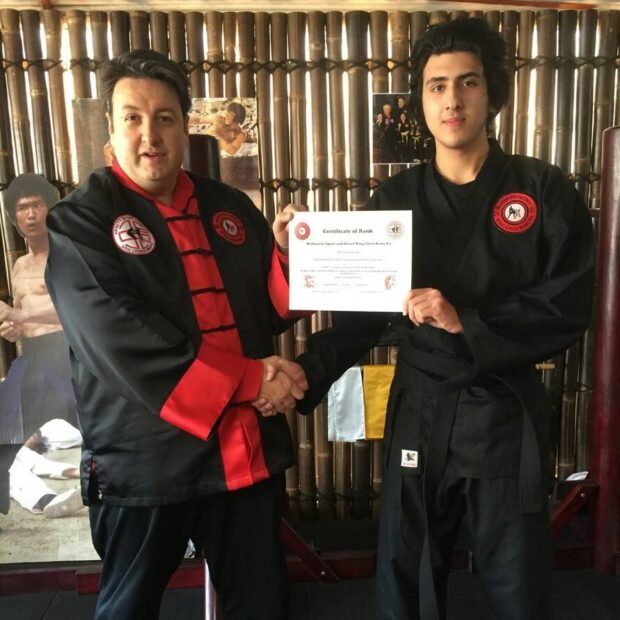How Many Years Does It Take to Learn Martial Arts?
Unraveling the Journey of Mastery
By Maurice Novoa a master under the Yuen Kay Shan, Ip Man and Pan Nam lineages.
Introduction:
As an experienced martial arts instructor with over 30 years of experience, I am often asked by enthusiastic students how long it will take them to become proficient in martial arts. The answer is not as straightforward as one might think. Learning is not merely about a specific timeline but rather a personal journey of growth and self-improvement.
In this article, we’ll delve into the factors that influence the learning process and the steps you can take to embark on a fulfilling journey.
The Path of Mastery in Martial Arts
Martial arts, in its essence, is a lifelong journey of mastering various techniques, disciplines, and philosophies. The time it takes to become proficient varies significantly depending on several key factors.
Style and Complexity
The first consideration is the style of martial arts you choose to pursue. Some styles may have a more straightforward curriculum with a limited number of techniques to learn, making proficiency achievable in a shorter period. On the other hand, more complex styles with intricate movements and advanced concepts may require a longer commitment to achieve mastery.
Frequency of Training
Consistency is vital in martial arts training. The more frequently you train, the faster you are likely to progress. Regular practice helps reinforce muscle memory, improves technique, and builds stamina. For those who dedicate more time to training each week, progress is typically more rapid.
Setting Realistic Expectations
It’s essential to set realistic expectations from the outset. Mastery in martial arts is not about a quick fix or a short-term goal. Rather, it’s about embracing the process and enjoying the journey of self-discovery and improvement.
Learning the Basics
In the early stages of martial arts training, the focus is on learning the fundamental techniques and principles. This stage is crucial as it lays the foundation for future development. As with any skill, mastery begins with a strong understanding of the basics.
Progressing Through Ranks
Many martial arts systems use a belt-ranking system to signify a student’s level of proficiency. Advancing through the ranks is a significant milestone and often requires dedication and time. Each belt level comes with new challenges and techniques to master.
Adopting a Growth Mindset
Having a growth mindset is essential in martial arts. Embrace the idea that progress takes time, and there will be ups and downs along the way. View challenges as opportunities for learning and improvement, and celebrate each milestone, no matter how small.
Personal Commitment and Dedication
Your commitment and dedication to your martial arts training will play a significant role in your progress. Those who are passionate and invested in their practice are more likely to see faster improvement.
Attending Classes and Workshops
Attending regular classes and workshops can accelerate your learning. Instructors can provide valuable feedback, correct mistakes, and offer personalized guidance. Workshops and seminars led by experienced practitioners can also provide insights and exposure to new techniques.
Practice Outside of Classes
To enhance your skills, practice outside of class is essential. Repetition helps solidify techniques and improves muscle memory. Whether it’s practicing forms (katas), shadowboxing, or working on specific techniques, consistent practice outside of class contributes significantly to progress.
The Journey of a Lifetime
Ultimately, there is no fixed timeline for mastering martial arts. It is a journey that evolves with time, dedication, and continued learning. Embrace the process, enjoy the camaraderie with fellow practitioners, and revel in the personal growth that the training offers.
Martial Arts as a Lifestyle
Martial arts is more than just a physical activity; it becomes a way of life for many practitioners. As you progress on your journey, you may find that this practice influences various aspects of your life, from increased discipline and focus to improved mental and emotional well-being.
Lifelong Learning and Growth
In martial arts, there is always something new to learn, no matter your level of proficiency. Even the most experienced practitioners continue to refine their techniques and deepen their understanding of the art.
Conclusion:
The journey of mastering martial arts is an ongoing and rewarding process that requires dedication, patience, and a growth mindset. While there is no fixed timeline for achieving proficiency, each step of the journey offers opportunities for personal growth and development.
Embrace the process, enjoy the camaraderie with fellow practitioners, and remember that the true essence of martial arts lies in the continuous pursuit of knowledge and improvement. So, whether you are a beginner or an experienced martial artist, embrace the path of mastery and savor every step along the way.

